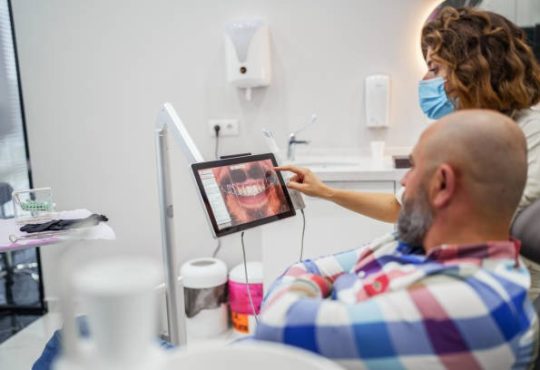
What Common Dental Myths Should I Ignore?
There are numerous dental myths floating around that can lead to confusion and misinformation about oral care. These myths often stem from outdated practices and misunderstandings, creating unnecessary worry. Recognizing these myths and understanding the facts can empower you to make better dental decisions. This article addresses common dental myths and clarifies them so you know which advice to follow for optimal oral health.
Debunking Widespread Dental Myths
Brushing Harder for Better Cleanliness
A widespread misconception is that brushing harder means cleaner teeth. The reality is quite the opposite. Brushing with excessive force can damage the enamel and irritate the gums, leading to sensitivity and gum recession. Using a soft-bristled toothbrush with gentle, circular motions is recommended for effective cleaning without harming your teeth or gums.
Sugar Is the Only Cause of Cavities
While sugar significantly contributes to cavities, it’s not the sole cause. Acidic foods and beverages also risk eroding enamel and creating a cavity-friendly environment. Citrus fruits, and sodas, both sugary and diet, can affect dental health. Balanced nutrition and regular dental hygiene practices are vital to preventing cavities and maintaining oral health.
White Teeth Mean Healthy Teeth
The belief that white teeth equate to healthy teeth is misleading. Teeth can vary in color naturally and still be healthy. Overuse of whitening products can lead to sensitivity or weaken enamel, which undermines oral health. Prioritize consistent oral hygiene habits and consult a dental professional to address concerns rather than focusing solely on tooth color.
Bleeding Gums Are Normal
Bleeding gums during brushing or flossing often signal gum issues. While minor irritation can occasionally cause bleeding, frequent bleeding can indicate gum disease. It’s crucial to address persistent bleeding with a dental professional to prevent further complications.
The Myth of Skipping Flossing
Some people underestimate flossing’s role in daily oral care, believing it is unnecessary. In reality, flossing effectively removes plaque and debris between teeth, areas a toothbrush can’t reach. Neglecting this step can lead to cavities and gum diseases. Regular flossing complements brushing, ensuring comprehensive dental care.
Preventative Dentistry Services Are Pricey
There’s often a belief that preventative dentistry services are costly. However, investing in these services can be cost-effective by avoiding expensive procedures. Regular check-ups and cleanings help identify issues early, making treatments less invasive and expensive.
Mouthwash as a Substitute for Brushing
Using mouthwash might seem like a substitute for brushing, but it’s not. While mouthwash freshens breath and can reduce plaque, it doesn’t replace the comprehensive cleaning brushing provides. Mouthwash should be part of an oral hygiene routine, complementing brushing and flossing to ensure a clean, healthy mouth.
Children Don’t Require Early Dental Visits
Another myth is that children only need dental visits once older. This belief overlooks the importance of baby teeth and early dental health in children’s development. Regular check-ups monitor growth and prevent decay, while also helping children become accustomed to dental visits, setting a foundation for healthy oral hygiene practices.
Unnecessary Cosmetic Dentistry Assumptions
Cosmetic dentistry is often viewed as non-essential, purely for aesthetic enhancement. Yet, services such as cosmetic dentistry in Central Park South offer functional and appearance improvements. They help with bite alignment and ease oral hygiene, serving a dual purpose of aesthetics and health enhancement.
The Fallacy That All Dentists Offer the Same Quality
There’s a misconception that all dental professionals offer similar care levels. Training, approach, and skills can greatly influence the outcome and experience of dental care. Finding the best dentist in Central Park to cater to specific needs requires research and consideration to ensure optimal care and a comfortable experience.
Baking Soda as a Tooth Whitener
While baking soda can have some whitening effects, frequent use can be abrasive and damaging to tooth enamel. It’s essential to use it cautiously and not as a primary whitening method. Discuss with a dentist for safe, effective whitening solutions that don’t compromise dental health.
Dental Health and Aging Myths
Some believe that maintaining dental health is less critical as one age, but this is false. Oral hygiene must be preserved regardless of age, as seniors are susceptible to gum disease and tooth decay. Regular dental care visits and proper brushing and flossing are vital in maintaining oral health into the later years.
Steps for Maintaining Oral Health
-
Brush twice daily with fluoride toothpaste for a minimum of two minutes.
-
Floss daily to remove plaque and debris between teeth.
-
Reduce sugary and acidic intake to safeguard tooth enamel.
-
Schedule regular dental visits for professional evaluations and cleanings.
-
Include mouthwash in your routine to promote fresh breath.
Positive Outcomes of Excellent Oral Hygiene
-
Prevention of tooth decay and cavities.
-
Lowered risk of gum disease.
-
Long-term maintenance of a bright smile.
-
Enhanced breath quality.
-
Contributes to better overall health by minimizing oral bacteria.
Professional Dental Care
Dentists are instrumental in maintaining oral health, offering services from routine cleanings to specialized preventative and cosmetic procedures. Regular dental appointments enable early problem detection and effective treatment, saving time and discomfort. By integrating professional advice and services, individuals can ensure their dental health is well managed.
Recognizing When to Consult a Dentist
Understanding when to seek dental advice can prevent long-term issues. Symptoms such as persistent toothaches, recurrent gum bleeding, or visible decay indicate a need for professional consultation. Routine check-ups every six months help identify potential problems before they escalate, supporting continued oral health.
Closing Remarks
Understanding dental myths and replacing them with factual information is crucial for effective oral care. By dispelling these myths and relying on professional guidance, individuals can support their dental health journey, leading to healthier teeth and gums. Good dental practices are foundational not just for maintaining a sparkling smile but for overall wellness.
For doubts or queries about dental care, consult with a dental professional for tailored advice. Continuing to dispel myths ensures that achieving and maintaining excellent oral health is both attainable and manageable.






